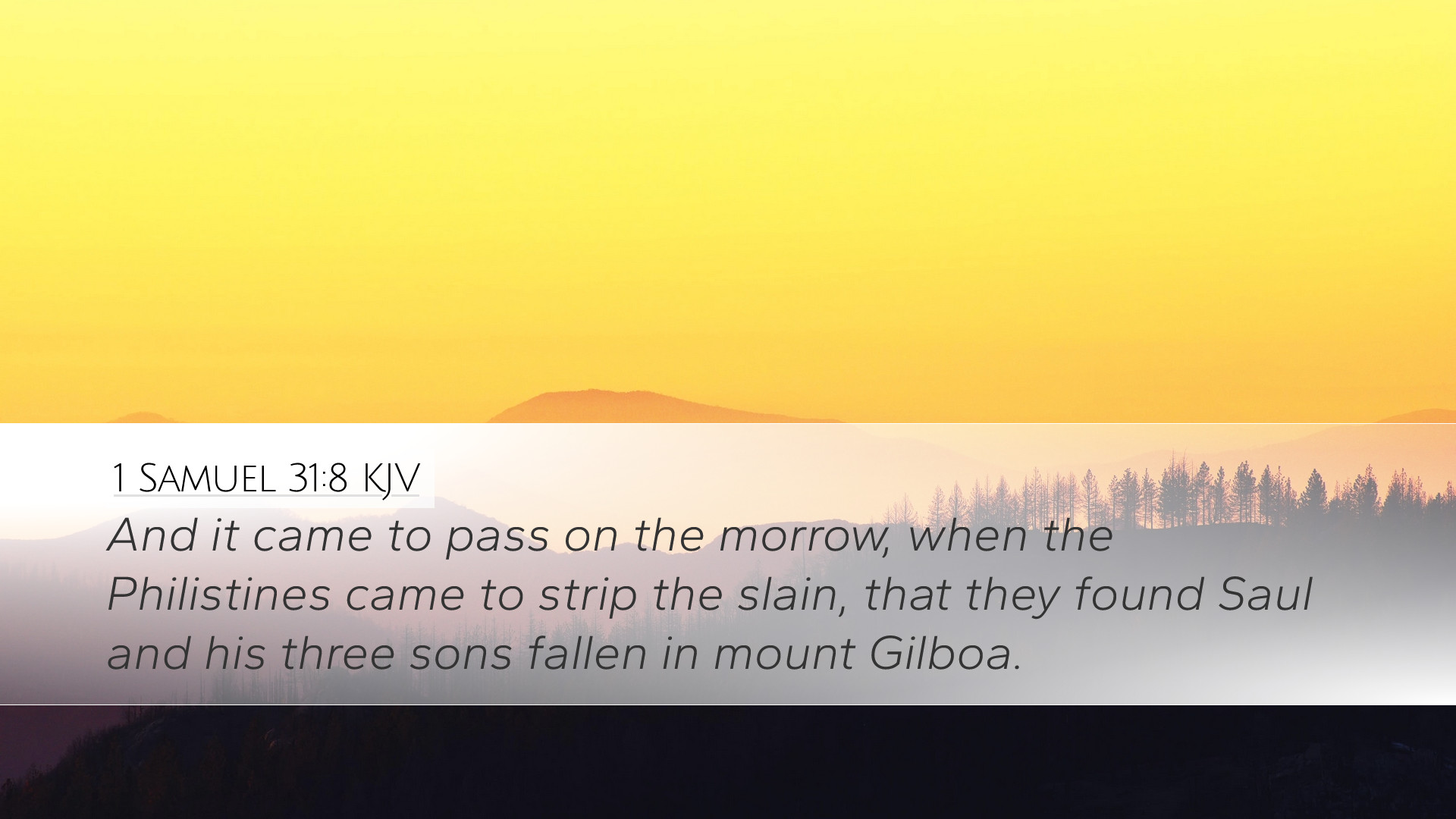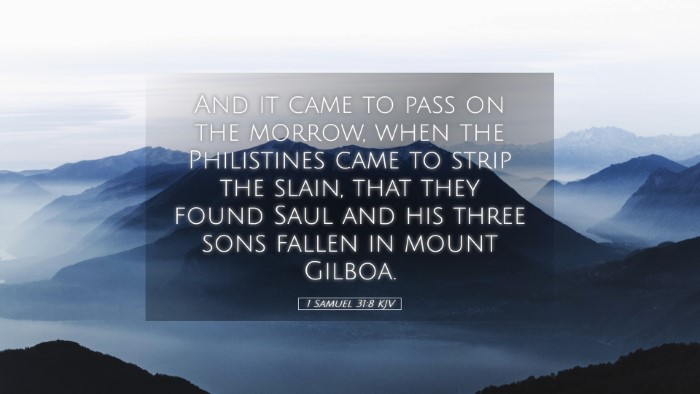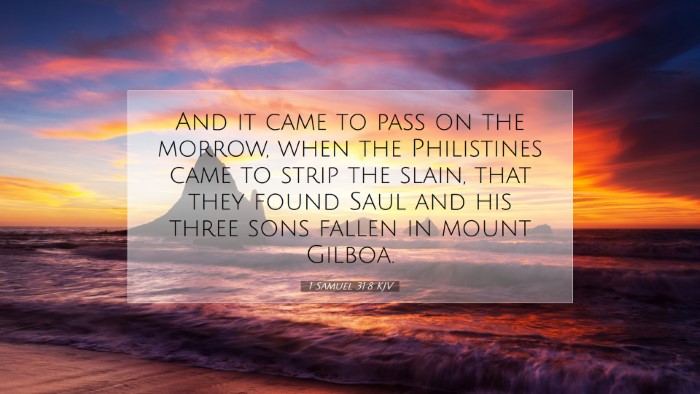Commentary on 1 Samuel 31:8
Verse: 1 Samuel 31:8 - "And it came to pass on the morrow, when the Philistines came to strip the slain, that they found Saul and his three sons fallen in mount Gilboa."
Contextual Overview
The narrative of 1 Samuel 31 represents a climactic conclusion to the tragic story of King Saul, the first monarch of Israel. His fall from grace, marked by disobedience and despair, culminates in his death at the hands of the Philistines. The historical backdrop of this verse is laden with themes of tragedy, loyalty, divine judgment, and the ultimate sovereignty of God over Israel.
Commentary Insights
1. The Tragic Fate of Saul
Matthew Henry notes that Saul's demise serves as a key lesson on the consequences of turning away from God. His life, filled with moments of great promise and anointing, reflects the dangers of pride and disobedience. Saul's end, found on the battlefield, symbolizes the culmination of a life that strayed from divine direction.
2. The Philistine Victory
Albert Barnes emphasizes that the arrival of the Philistines to strip the slain highlights the hubris of their victory. They had long been at war with Israel, and this moment signified not just a military triumph but a spiritual one in their viewpoint. This act of stripping the dead was common in ancient warfare, serving both practical and ritualistic purposes.
3. The Significance of Mount Gilboa
Adam Clarke remarks on the geographical and symbolic importance of Mount Gilboa. It represents the place where Saul's hopes and failures collapsed. Clarke notes the contrast between the heights of Gilboa and the depths of Saul’s despair as he faced victory turned into defeat.
4. A Divine Perspective on Tragedy
This passage invokes a profound reflection on the sovereignty of God in the affairs of humanity. As it is indicated in other scriptures, God's hand is at work even in moments of loss and tragedy. The death of Saul isn’t merely an end; it serves as a pivotal moment that leads to the anointing of David, God's chosen leader, who would restore Israel.
5. Lessons for Leaders
For pastors and spiritual leaders, the story of Saul invokes sobering reflection. Saul's life urges leaders to seek divine guidance continually and to recognize the peril of self-reliance. His tragic end is a warning against the arrogance that can accompany power, reminding leaders that without humility and obedience to God, they can fall.
Theological Reflections
The theology surrounding 1 Samuel 31:8 serves to remind the reader of the severe consequences of apostasy and the importance of faithful leadership. It also lays groundwork for understanding God’s plan through David, illustrating that even through human failure, God’s purpose prevails.
Modern Application
The lessons from 1 Samuel 31:8 resonate today within church leadership, congregations, and personal faith. Here are some key takeaways:
- Vigilance in Leadership: Leaders must remain vigilant and seek God’s guidance.
- Accountability: The importance of accountability in the body of Christ can prevent similar downfalls.
- God’s Faithfulness: Understanding that even in tragedy, God remains faithful to His people through new beginnings.
- War between Good and Evil: The ongoing struggle evident in the life of Saul illustrates the continual conflict within and outside the believers' life.
Conclusion
The passage in 1 Samuel 31:8 serves as a reflection of both despair and hope. The fall of Saul marks the end of a turbulent chapter in Israel’s history, reminding us of the fragility of human ambition in the face of divine will. For those studying this text, it encourages profound contemplation on leadership, reliance on God, and the everlasting nature of God’s purpose among His people.


